The insurrection was just the beginning: Inside the GOP’s anti-democratic push to sabotage elections
Legislative attempts to hijack election administration have hastened America’s autocratic slide, Alex Woodward reports

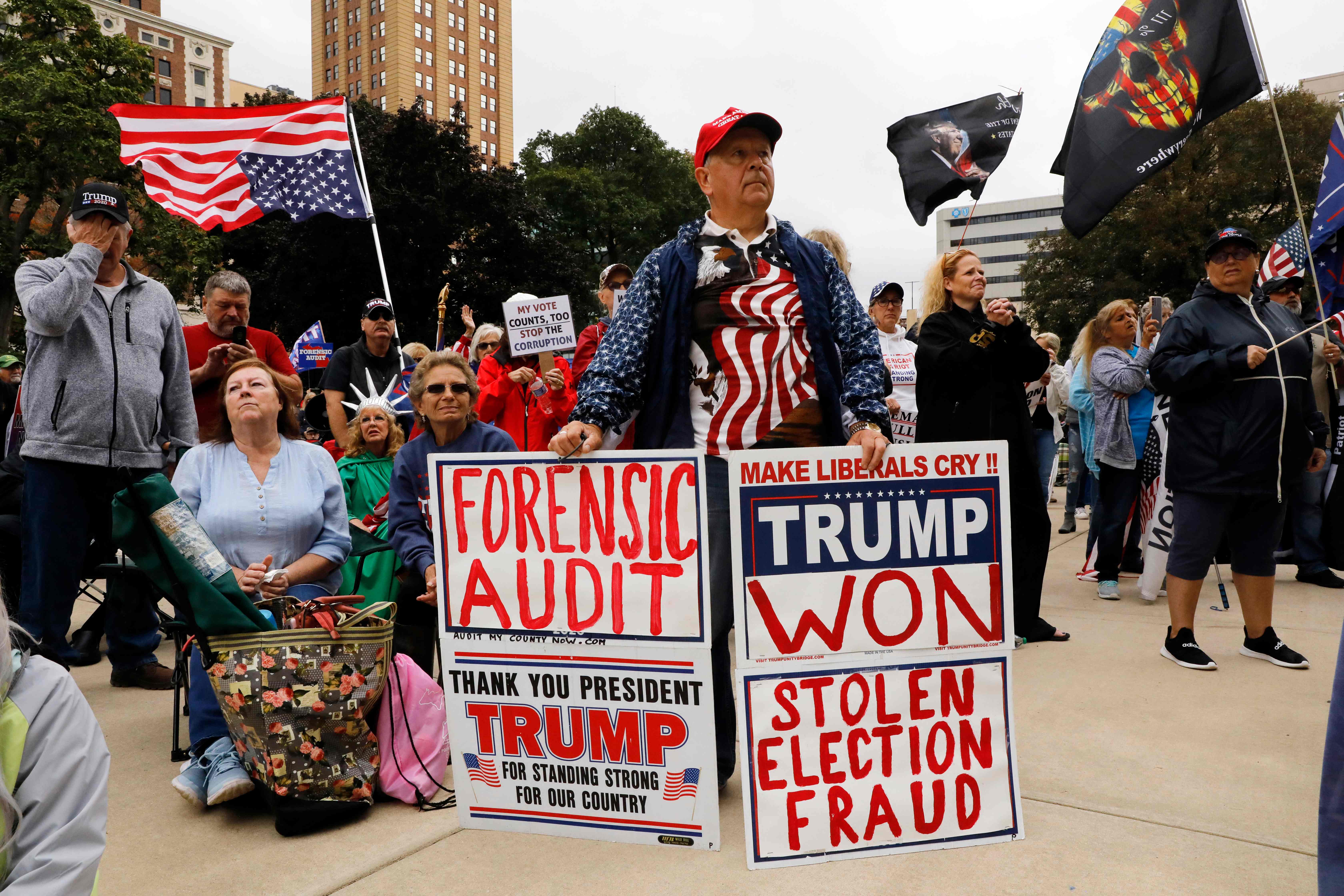
Your support helps us to tell the story
From reproductive rights to climate change to Big Tech, The Independent is on the ground when the story is developing. Whether it's investigating the financials of Elon Musk's pro-Trump PAC or producing our latest documentary, 'The A Word', which shines a light on the American women fighting for reproductive rights, we know how important it is to parse out the facts from the messaging.
At such a critical moment in US history, we need reporters on the ground. Your donation allows us to keep sending journalists to speak to both sides of the story.
The Independent is trusted by Americans across the entire political spectrum. And unlike many other quality news outlets, we choose not to lock Americans out of our reporting and analysis with paywalls. We believe quality journalism should be available to everyone, paid for by those who can afford it.
Your support makes all the difference.A wave of lies and conspiracy theories culminated in a lethal attempt to reject millions of votes. Lawmakers launched bogus partisan-driven audits and investigations into election results. State and local election officials, facing threats and legislation to replace them with sycophants, resigned.
Millions are now convinced that the very foundation of the electoral process is broken, that a baseless narrative of widespread voter fraud and manipulation is true, and that the sitting president is illegitimate. Those lies have fuelled dozens of bills in nearly every state to make voting more difficult, and to change the rules to undermine the will of the people.
A tolerance for political violence is growing by the day.
An attack on the US Capitol mounted by Donald Trump’s supporters sought to do what the former president and his allies could not. In its wake, a slow-burn, page-by-page collapse of democracy and slide into far-right autocracy is playing out in state legislatures across the US.
The next attempt to overturn an election will rely on subversion rather than an all-out physical assault, and the rhythms of bureaucracy rather than a coup.
In 2021, Republican state lawmakers passed at least 32 new laws in 17 states to change the rules of election administration, stripping oversight from election officials to put it into the hands of GOP-controlled legislatures.
Republican lawmakers filed at least 262 bills in 41 states in 2021 alone, and more are coming in 2022, as attempts to subvert the electoral process metastasize into a growing anti-democratic party platform.
“It is in my view a more quiet legislative insurrection, based on those same lies and conspiracy theories we saw centre stage January 6,” says Joanna Lydgate, former chief deputy attorney general of Massachusetts and the CEO of non-partisan advocacy group States United Democracy Center.
“It is a carefully calculated effort to erode trust in the system and the people who run it to justify a power grab,” she tells The Independent. “It is really time for people to pay attention in 2022.”
The anti-democratic ‘playbook’
States United identified four key themes in a growing anti-democratic legislative “playbook” to “lay the foundation for election sabotage”: change election rules to make it easier to undermine voters, embolden attacks against or wholly replace election officials, promote conspiracy theories, and erode public confidence and trust in the electoral process.
Essentially: change the rules to change the players to change the outcome.
A parallel effort driven by the same fraudulent narratives and right-wing interest groups has seen dozens of bills that would make it more difficult to vote.
At least 19 states passed 24 laws restricting ballot access, after GOP lawmakers filed more than 440 bills in 49 states in 2021 alone, according to the Brennan Center for Justice at New York University School of Law.
More than a dozen bills restricting ballot access have been pre-filed ahead of 2022 legislative sessions in four states, and at least 88 bills in nine states will carry over from 2021 sessions.
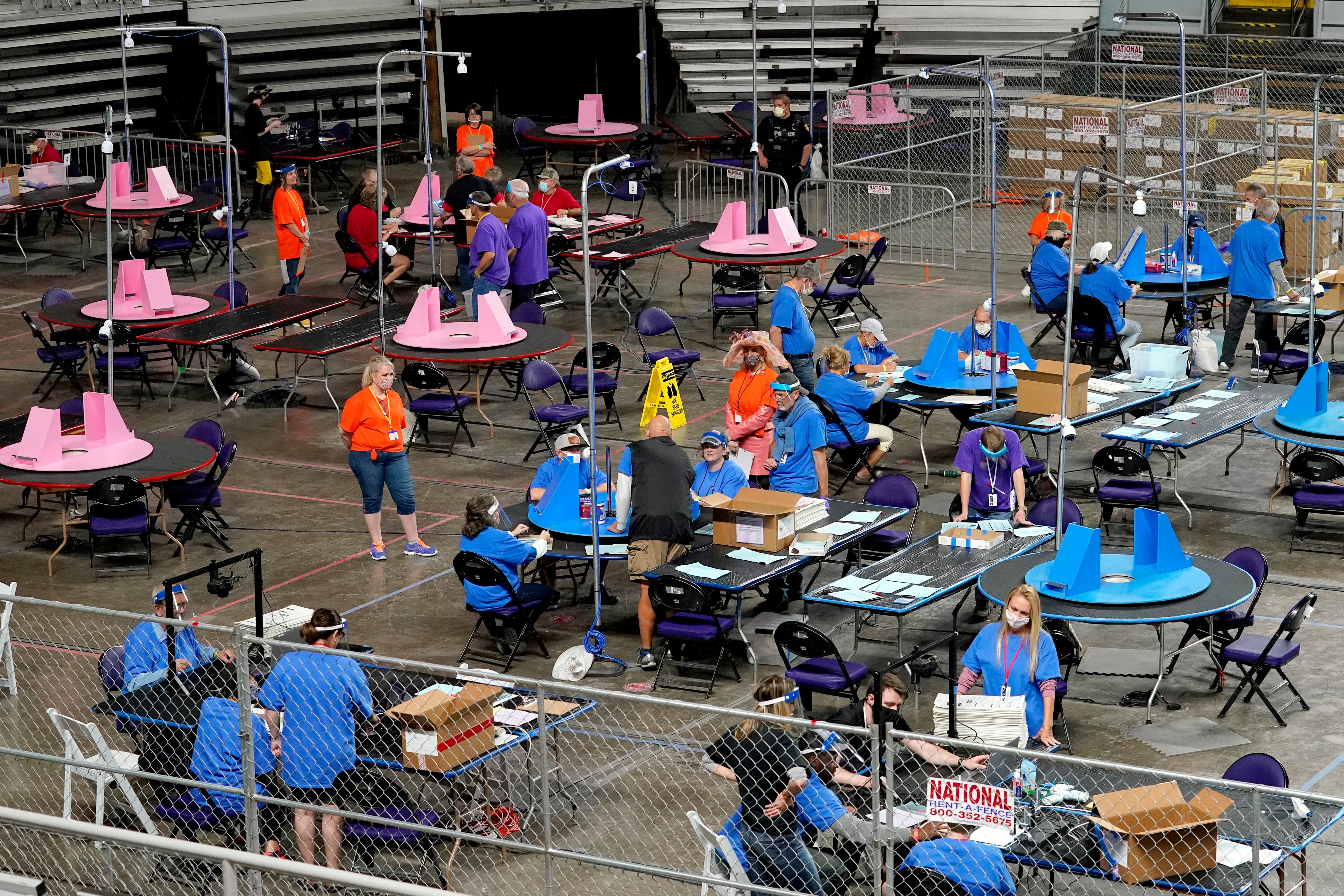
The Covid-19 crisis spurred election changes that expanded vote-by-mail access in many states. The former president waged a public assault on the process, which he called a “hoax” and “corrupt” before a single ballot was even cast in 2020 elections, appearing to sow doubt to justify a plan to scrap the votes.
Since then, Republicans have launched a coordinated campaign under the guise of preserving “election integrity” and restoring “voter confidence” that the president himself undermined.
The persistent lie that the election was stolen from him – and his legal team’s baseless attempts to overturn millions of Americans’ votes – emboldened Republican state lawmakers across the US to legitimise those attempts through legislation.
Those lies sustained spurious election investigations and “audits” to undermine the outcomes in states that Trump lost, while lawmakers continue to introduce legislation in nearly every state to drive election workers from their jobs.
The struggle to expand and protect civil rights has defined the course of American history, and the latest wave reflects a broader pattern of attempts to make voting an exclusive franchise.
But current threats have brought the US to a “precipice” that could determine “whether this experiment with democracy is going to hold or fall into authoritarianism,” says Sophia Lin Lakin, deputy director of the American Civil Liberties Union’s (ACLU) Voting Rights Project.
“Democracy as a principle seems to be in danger, given the kinds of assaults we’ve been seeing,” she tells The Independent. “It’s not simply the voter suppression that has been very much the thread of this country’s history … but literally subverting the actual votes themselves, or putting in a process that would allow a loser to potentially revisit what are valid election results.”
A movement birthed from right-wing interest groups and given legitimacy from so-called conservative legal scholars has met a well-financed campaign – leveraging support from right-wing organisations like Turning Point USA and Trump allies including Steve Bannon and Michael Flynn – to overwhelm politics at the local level.
Election fraud conspiracy theories driving QAnon and “Stop the Steal” are now embedded into a broad far-right media ecosystem – from Bannon’s War Room podcast to platforms like Telegram – that has targeted state and local campaigns for candidates involved with election administration.
The strategy is echoed at increasingly fraught schoolboard meetings, on the stages of campaign rallies, and at the Conservative Political Action Conference (CPAC), where Republicans urged crowds to bombard local campaigns with baseless claims of election fraud.
“Don’t fall into the trap that liberals want to go, which is federalising” election administration, former congressman Jason Chaffetz told CPAC attendees in February.
“Fight it in your own community,” he said. “That’s where conservatives need to be organised.”
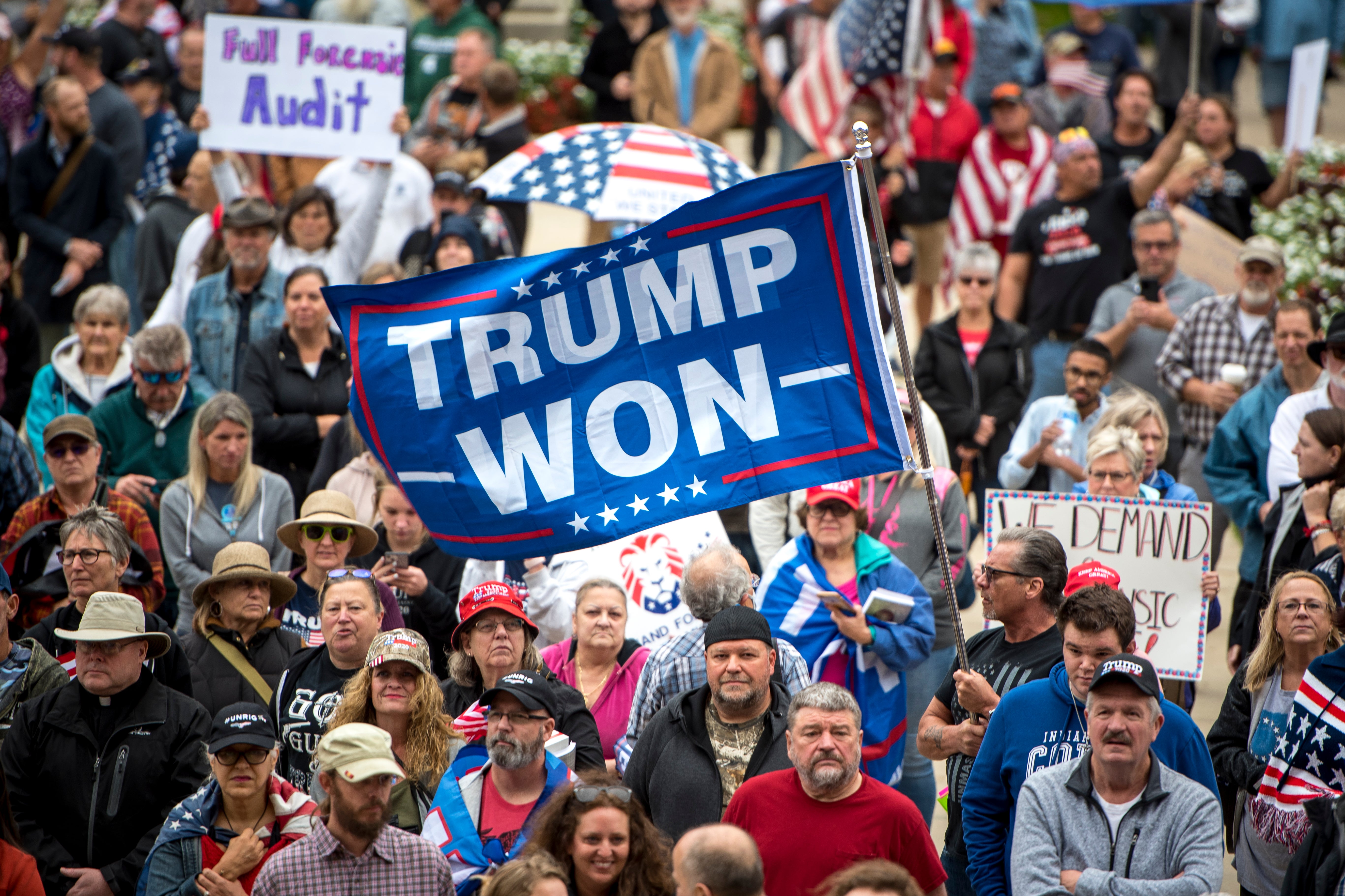
Far-right extremist movements also have pushed into mainstream conservative politics by forming nonprofit groups, participating in phone banking and hosting conferences of their own in an effort to “establish political legitimacy within mainstream conservative circles to attract support,” according to a recent report from the Atlantic Council’s Digital Forensic Research Lab, which studies the spread of disinformation.
“Movement leaders are overwhelmingly encouraging local over national actions,” the report found. “This has led many to adopt causes embraced by mainstream conservatives, from fighting Covid restrictions to challenging school curricula, directing their ire at local officials.”
Documents obtained by the House committee investigating the Capitol riot also revealed how Trump’s allies planned a campaign of targeted harassment and intimidation against election officials and a “strategic communications plan” to amplify election fraud conspiracy theories in the days leading up to 6 January, when Congress convened to certify the results of the 2020 presidential election.
Public officials involved with election administration are “absolutely essential to a government of by and for the people,” Ms Lydgate tells The Independent. “Those are the people who oversee our elections. Those are the people who count the ballots. Those are the people who make sure our elections are free and fair.”
State- and local-level races that typically avoid national scrutiny and partisan influence now include endorsements from a former president backing candidates running on lies about the election process itself.
“It raises some really major red flags,” Ms Lydgate says. “Having people understand what these folks do, why these positions are really among the most important to our democracy … and the integrity of our elections is really important in this moment.”
‘A mortal danger to democracy’
Proposed changes to election oversight have turned the administrative task of running the nation’s elections into a hostile political minefield.
One in three election workers feel unsafe because of their jobs, and one in six workers have faced threats as they help run the nation’s elections, according to a 2021 report from the Brennan Center.
“All of this represents a mortal danger to American democracy, which cannot survive without public servants who can freely and fairly run our elections,” the report says.
Reuters identified more than 100 threats of death or violence against election workers, and hundreds of reports of intimidation and harassment.
Two women in Georgia are suing the far-right conspiracy website Gateway Pundit for defamation, alleging that the site and its owners knowingly published false stories that triggered abuse that forced one woman to leave her home for two months, on the advice of the Federal Bureau of Investigation.
Those lies were repeated by Trump’s attorney Rudy Giuliani and Trump himself, who mentioned one of the workers by name 18 times during a call in which he pressed Georgia officials to alter the state’s election results.
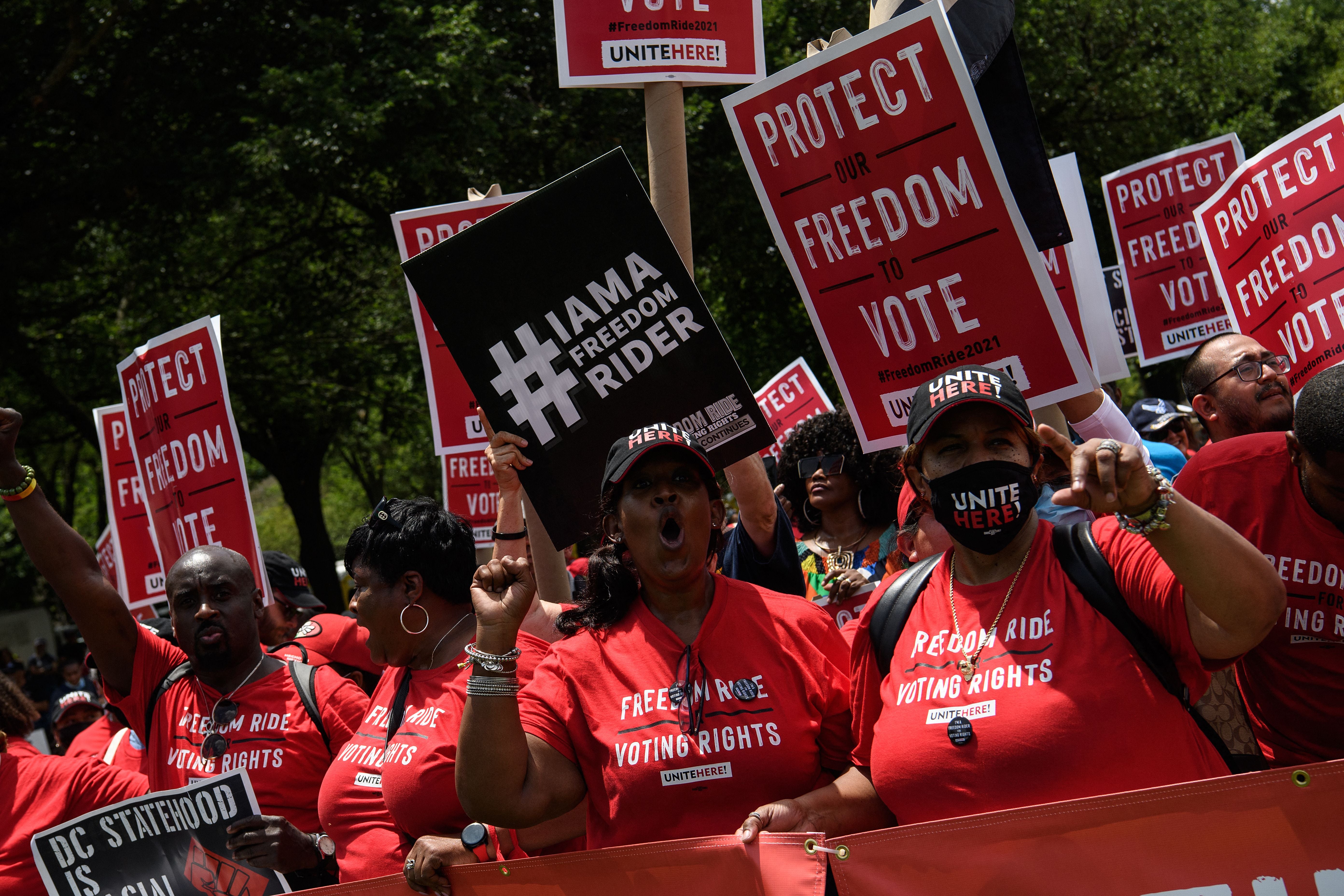
In Pennsylvania, efforts are underway to “recruit hyper-partisan election sceptics and conspiracy theorists at a precinct level,” according to States United.
A pastor who attended the Trump rally on 6 January in Washington DC recently won a race to become an election judge overseeing elections in a rural part of Lancaster County. States United also “uncovered a cluster of election deniers” in local races across the state.
GOP lawmakers in the state also proposed a constitutional amendment to allow the legislature to “unilaterally scuttle any election regulations” from the state’s chief elections officer and other executive branch agencies. It would also create a permanent vote audit mechanism – subject to the legislature’s oversight.
In Wisconsin, state lawmakers have proposed jailing members of the state’s Elections Commission or its staff “if they wilfully neglect to engage in a particular version of voter registration list maintenance,” according to States United.
The state’s bipartisan commission is “being swarmed with a third-party investigation into the 2020 election, litigation, flawed reviews, and criminal inquiries.”
In Michigan, Republicans in eight of the 11 largest counties in the state have replaced appointees to county canvassing boards with conspiracy theorists who could block approval of elections.
“It’s like putting arsonists in charge of the fire department,” Ms Lydgate tells The Independent. “We are literally giving power over our elections to people who do not believe in our elections.”
At least three candidates running for secretary of state with Trump’s endorsement are “campaigning on radical positions that would undercut independent election administration”, according to States United.
Efforts to consolidate electoral oversight in several states also are backed by a controversial “independent state legislature doctrine” promoted by conservative legal scholars. US Senator Ron Johnson of Wisconsin proposed that his state’s legislature could seize control of elections.
“There’s no mention of the governor in the constitution,” he told the Milwaukee Journal Sentinel. “It says state legislatures, and so if I were running the joint – and I’m not – I would come out and I would just say, ‘We’re reclaiming our authority. Don’t listen to [Wisconsin Elections Commission] anymore. Their guidances are null and void.’”
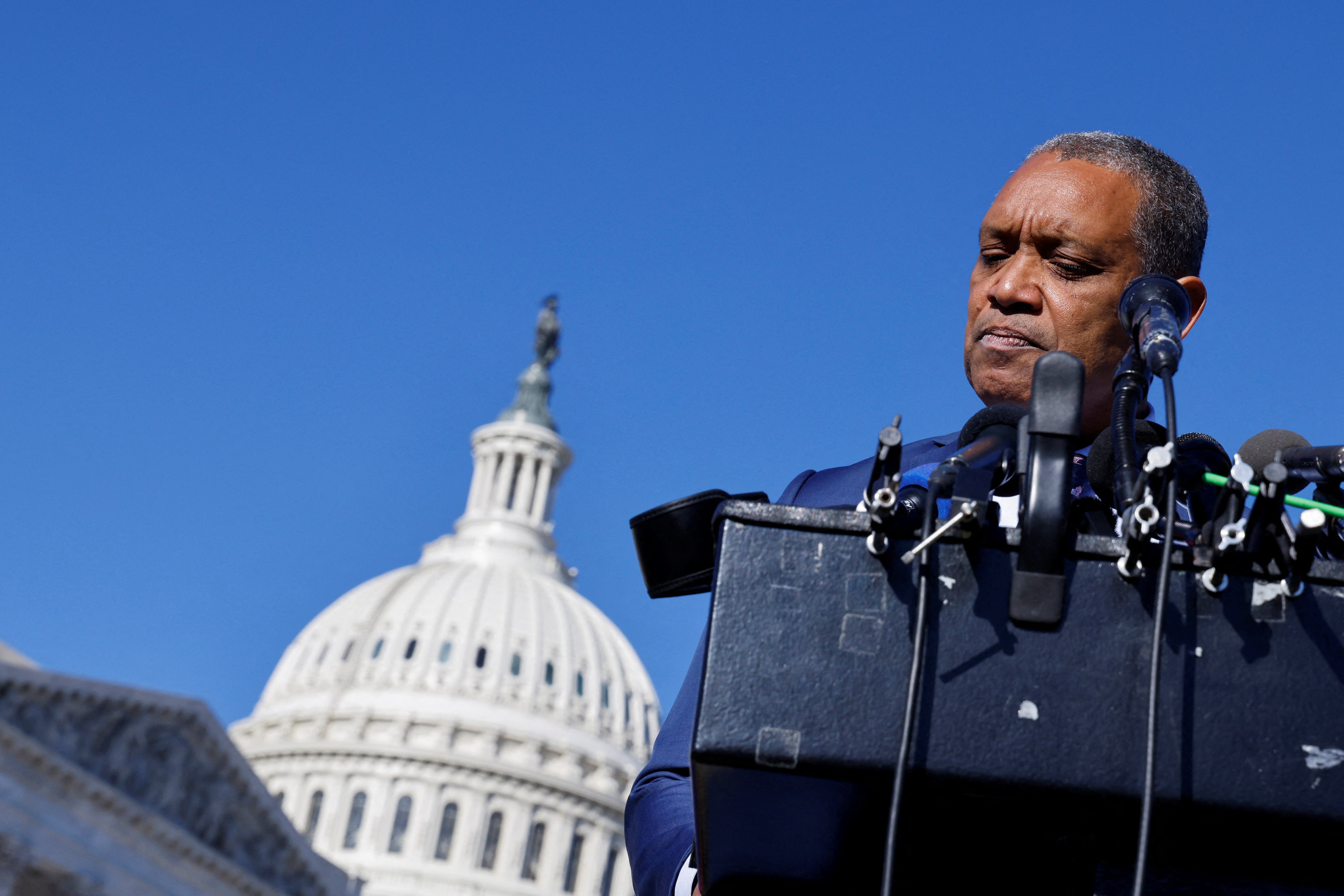
“We’re living in extraordinarily perilous times,” says Ms Lakin with the ACLU.
“What we’re seeing in this legislation raises a lot of concerns around partisan aspects of what should otherwise be a … straightforward process, and injecting partisanship into that process,” she tells The Independent.
“What I think makes a lot of people nervous is these are concerns that a lot of people watching the 2020 election had going into the election, about whether election workers would hold the line and do their job as they’re supposed to do,” she added. “The question is, did … individuals who believe in the big lie, who believe in controlling the levers of power, have they learned lessons about getting into the system, to manipulate things from the inside?”
Consequences
On 14 December, States United Democracy Center joined a lawsuit with Washington DC attorney general Karl Racine against more than two dozen members of the Proud Boys and Oath Keepers for their role in the Capitol attacks, in an attempt to recoup millions of dollars spent to defend the city and treat injured officers.
It marked the first effort by a government agency to hold groups civilly responsible for the insurrection.
“It’s important for people to understand that the insurrection wasn’t just an attack on Congress and on our public safety officers. It was an attack on democracy, it was an attack on American voters,” Ms Lydgate tells The Independent. “This case is about consequences and about protection, about making clear that we are a nation of laws, and there are serious consequences both legal and financial for trying to hijack an election.”
The US Department of Justice has filed several lawsuits against states, alleging newly passed election laws violate the Voting Rights Act, though voting rights advocates have stressed that voter suppression cannot be out-litigated or out-organised without significant intervention.
Federal legislation to expand ballot access on a national level and restore elements of the Voting Rights Act undermined by a pair of US Supreme Court decisions has been deadlocked in Congress. Activists have demanded that the White House intervene, while the balance of power is wrested by a narrative shaped by violence, grievance and deceit.
“This is not going to be a battle we can win exclusively in court,” Ms Lydgate says. “It’s going to be about accountability at the ballot box and the airing of the facts and the airing of the truth … Unfortunately we’ve moved away from the truth.”







Join our commenting forum
Join thought-provoking conversations, follow other Independent readers and see their replies
Comments